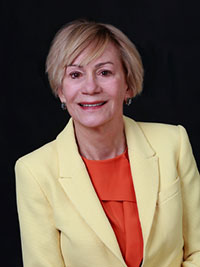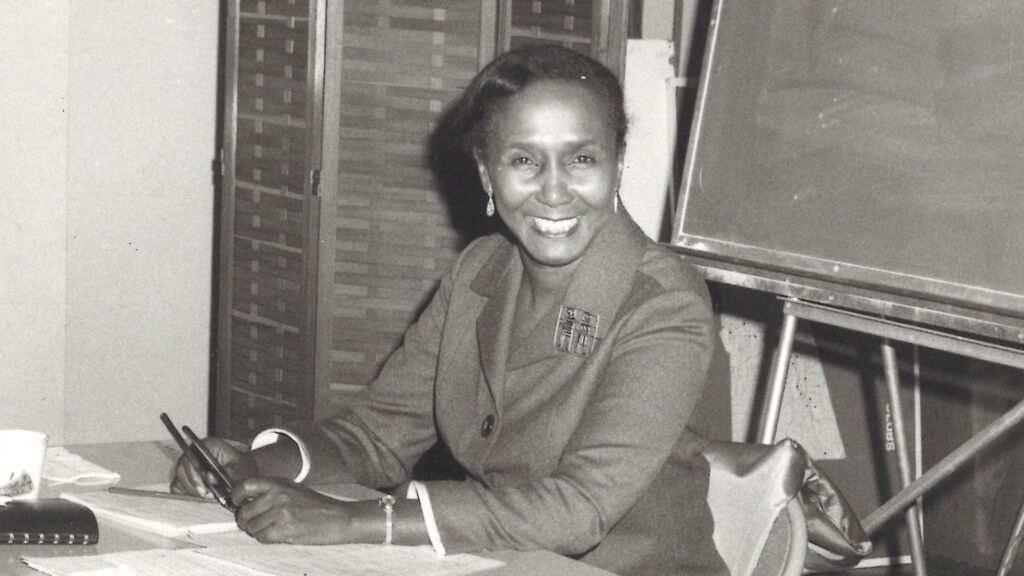FEATURED EVENTS


ISI Fellows 2024 Symposium: Experiencing Generative Team Leadership
January 12, 2024 @ 9:00 am - 11:00 am PST
ISI Fellows January Symposium 2024
Authors: Dr. Kathleen Curran & Dr. Randall Joy Thompson
The COVID-19 pandemic was cataclysmic. Fear, confusion, chaos, and the sad reality of death permeated people’s consciousness everywhere. Unprepared and sometimes in denial, our heroic leaders floundered. They were not prepared, lacked the necessary resources, and left many needs unfulfilled. A leadership void appeared. We, Kathleen Curran and Randal Joy Thompson, both Fielding University HOD PhD Graduates and Institute for Social Innovation (ISI) Fellows, noticed something remarkable happening in response to this leadership void. Self-organized groups around the world spontaneously appeared to meet unmet needs at the community level. The groups picked up laundry, delivered food, made friendly phone calls, made appointments online for COVID vaccines for the elderly, and undertook many other helpful acts. In the words of a co-founder of one of the groups, “The response from the public is overwhelming…It shows us what is possible when we prioritize simple compassion. People are self-organizing with incredible efficiency, respect, and creativity” (Lynch & Khoo, 2020, para. 4).
Other self-organized groups saw the pandemic as the opportunity for reflection and for creating a transformed post-pandemic world. These included Otto Scharmer’s GAIA journey that united over 10,000 people globally, Jeremy Lent’s Deep Transformation Network, and many others. Corporate teams, whose leaders were distanced by the pandemic, coalesced into stronger more focused and caring teams and shifted their values to a more collective orientation as measured by their pre-pandemic and mid-pandemic Squadify™ scores. All these groups, instead of wanting to bounce back to the old way of doing and being wanted to bounce forward to a new reality.
The void, chaos, and the adaptive challenges of the pandemic catalyzed a process of generativity, the creation of new images, metaphors, and physical representations that have two qualities: “they change how people think so that new options for decisions and/or actions become available to them, and they are compelling images that people want to act on…Generativity includes the processes and capacities that help people see old things in new ways” (Bushe, 2019, p. 142). We noted that a different kind of leadership, built from spirit, attitude, emotions, and behaviors that transformed uncertainty to a new way of collective thriving was emerging. We called this leadership Emergent Generative Team Leadership.
Generative Leadership is not a problem solving approach but rather is a form of leadership that creates a context which stimulates innovation within complex systems such as organizations, communities, and teams (Surie & Hazy, 2006). In the complex systems approach, “leadership” is not limited to an individual. Emergent Generative Team Leadership rests firmly on a relational approach and on social-emotional factors. It depends largely on “the connective tissue of relationships and the social-emotional forces that bind us to one another and to a cause” (Macaux, 2012, p. 4).
While operational capabilities are requisite to support team leadership, we believe that the emotional, cognitive, social and instrumental resources that catalyze generative team leadership and comprise “positive psychological capital” and “core confidence” are the vital factors, without which a team falters and reverts to seeking conventional leaders to rescue them. Intent, love, care, and hope are the forces that convert thought to action. These igniting forces transform our will (intent), emotion (love), accountability (care), and spirit (hope) to generative team leadership. See the figure below for the four forces of Emergent, Generative Team Leadership:
We have written about Emergent Generative Team Leadership in the 2022 Fielding Graduate University book Driving Social Innovation: How Unexpected Leadership is Transforming Society. We argue that that Emergent Generative Team Leadership is the most effective leadership approach to cope with the increasing complexity, uncertainty, and turbulence that characterizes our world.
We invite you to experience this work in real time and participate in a simulation on January 12, (https://alumni.fielding.edu/e/experiencing-generative-team-leadership-a-simulation/) involving teams of six who go on an adventure and experience the emergence of generative team leadership as they face challenges along the way. We are hoping that participants can provide us feedback regarding when and how they shifted from an individual to a collective orientation and how they experienced the socio-emotional forces of intent, hope, care, and love and how these influenced the way they collectively led.

Dr. Randal Joy Thompson
Dr. Randal Joy Thompson is an international development professional Fellow of the Institute for Social Innovation Fielding Graduate University. Dr. Thompson has been leading inclusive inter-cultural and international teams for many decades and purposefully builds diverse and equitable teams in which team members have a strong sense of belonging. Her books include: 1) Embodied Somatic Leadership for Peacebuilding and Protest: Women’s Counteroffensive to Violence and Injustice (2024 forthcoming), co-edited with Lazarina Topuzova; 2) Changing Realities for Women and Work: The Impact of COVID-19 and Prospects for the Post-Pandemic Work World, co-edited with Chrys Egan and Tina Wu; 3) Reimagining Leadership on the Commons: Shifting the Paradigm for a More Ethical, Equitable, and Just World (2021), co-edited with Kathleen Curran and Devin Singh; Proleptic Leadership on the Commons: Ushering in a New Global Order (2020) that proposed a novel leadership model for the post-capitalist transition predicted by many scholars and social critiques. This was the first book on leadership on the commons; and 4) Leadership and Power in International Development: Navigating the Intersections of Gender, Culture, Context, and Sustainability (2018), co-edited with Julia Storberg-Walker. This book, which won the Human Resource Development R. Wayne Pace HRD Book of the Year Award, proposed the first theory of leading in international development. Dr. Thompson is currently co-editing the International Leadership Association’s Transformative Women Leaders series. Her co-editors are Chrys Egan and Dionne Rosser-Mims.
Dr. Thompson has researched and published several book chapters and peer-reviewed journal articles on leadership. The chapters of her book cover women leaders in Afghanistan, post-war Bosnia-Herzegovina, Myanmar, and Morocco. She holds a BA in Philosophy from the University of California, Berkeley, an MA in Philosophy and an MBA from the University of Chicago, an MA in Biblical Exposition from Capitol Seminary and Graduate School, and a PhD in Human and Organizational Behavior from Fielding Graduate University.

Dr. Kathleen A Curran
Dr. Kathleen A Curran is a global coach, facilitator, and boundary-spanning strategist. Founder of Intercultural Systems, with 25 years of professional experience in Asia, she specializes in catalyzing the intersection of intercultural competencies, leadership, and global strategy in support of individual, team, and organizational global leadership development with the concomitant inclusive mindset and practices. She is also a Fellow with the Institute for Social Innovation, Fielding Graduate Universities, where she engages with the relationship between the sense of belonging and the freedom to experiment and the alignment of external global corporate and internal functional strategies, which comprise the fully global corporation. Her published works include From Uncertainty to Transformation: Emergent Generative Team Leadership from the Void (2022), co-authored with R.J. Thompson, Reimagining Leadership on the Commons: Shifting the Paradigm for a More Ethical, Equitable, and Just World (2021), with Randal Joy Thomson and Devin Singh. The Study and Practice of Global Leadership (2022), edited by Gama Perucci; Leadership and Power in International Development: Navigating the Intersections of Gender, Culture, Context, and Sustainability (2018), co-edited by Thompson and Storberg-Walker; and Advances in Global Leadership, Vol 12 (2021).
References:
Bushe, G. R. (2019). Generative leadership. Canadian Journal of Physician Leadership. 5(3), 141-147.
Lynch, P., & Khoo, A. (2020). Coronavirus: Volunteers flock to join community support groups. BBS News, March 22. https://www.bbc.com/news/uk-england-51978388
Macaux, W. P. (2012). Generative leadership: responding to the call for responsibility. The Journal of Management Development. 31(5), 449-469.
Sonnet, M., Southam, T., and Rosenthal, P. (2022). Driving social innovation: How unexpected leadership is transforming society. Fielding University Press.
Surie, G., & Hazy, J. (2006). Generative leadership: Nurturing innovation in complex systems. Emergent Publication.
Share This Event!
Join Over 7,500 Fielding Alumni Located Around The World!
Change the world. Start with yours.™
*All Fields are required. By submitting this form, you agree to be contacted regarding your request and are confirming you agree to our Terms of Use and Privacy Policy.



